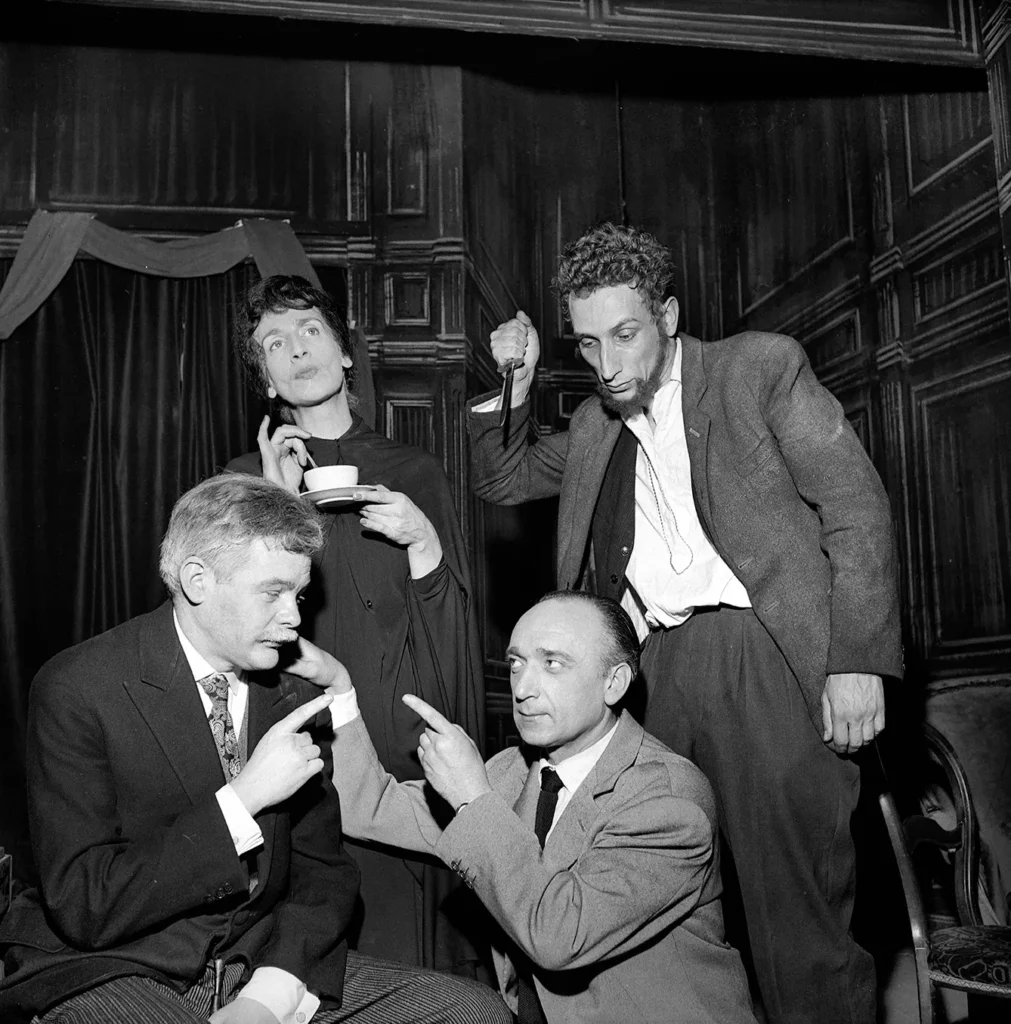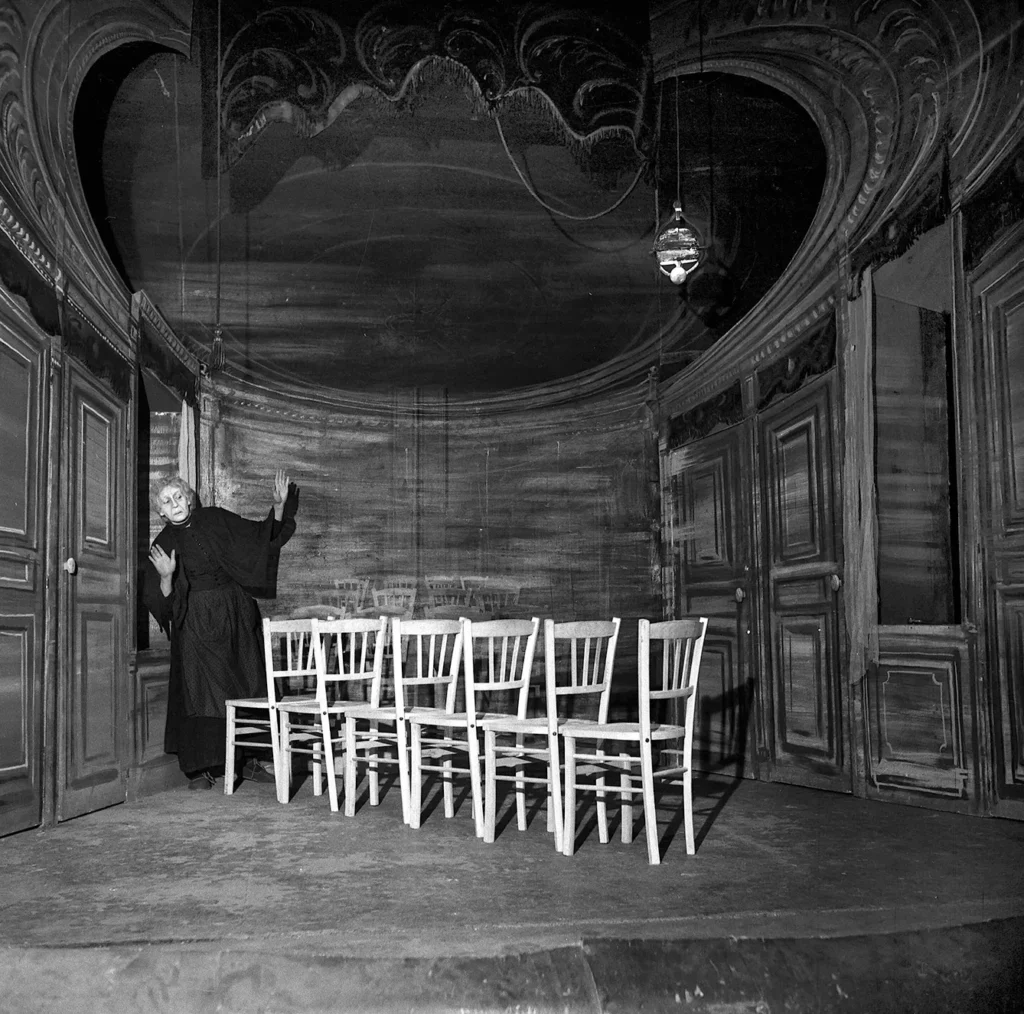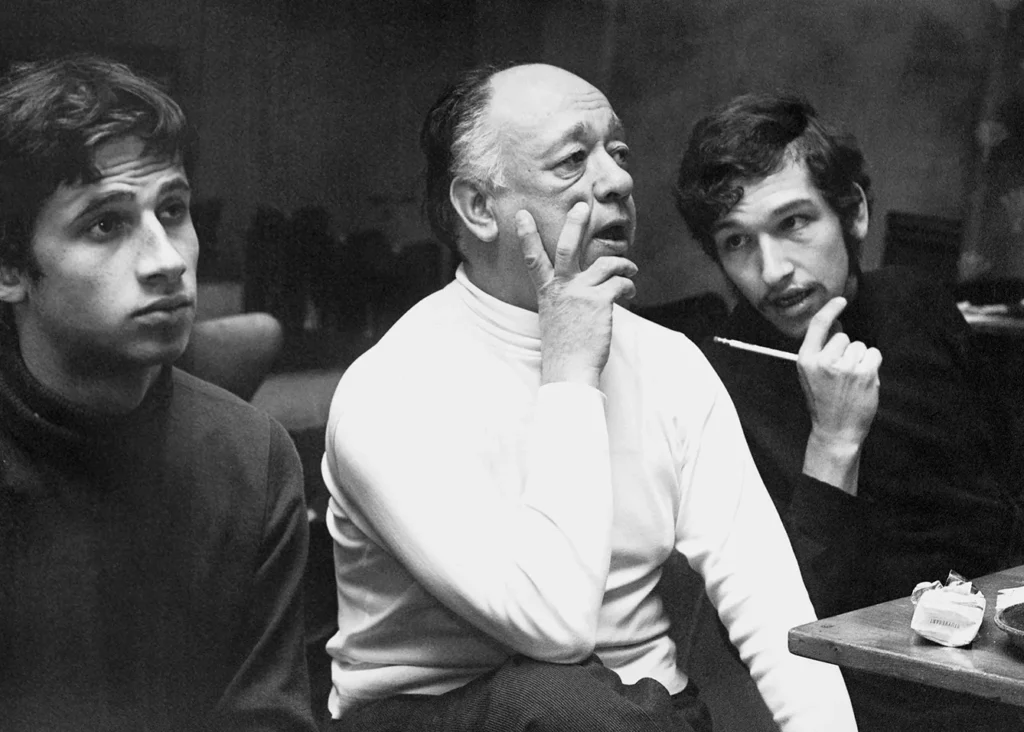Eugen Ionescu, also known as Eugène Ionesco, was born in 1909 in the southern county of Olt, Romania. Right from his birth, the boy was a very peculiar individual. Many controversies surround the year of his birth because in order to show his admiration for the Romanian dramatist I. L. Caragiale, who died in 1912, Eugen Ionescu maintained he was born that same year. But this is just one of the many intricacies of this playwright. He brought various other complex and sophisticated beliefs to life in his plays, which, in the history of art, fall under the Theatre of the Absurd category.
“It is not the answer that enlightens, but the question.”
Eugen Ionescu
Absurdism (or existentialism) was introduced by three writers, one of which was Eugen Ionescu. His play, “The Bald Soprano”, shocked the world in 1950, and, at first, not in a good way. The play, portraying what appears to be a regular meeting between two couples in a dining area, soon takes a bewildering turn as the dialogue between the characters emerges. The auditorium is suddenly transposed to a universe where nothing makes sense anymore. Baffling conversations, upsetting scenarios, and disorienting narration shortly reach reaches its culminating point when the bald soprano is mentioned. The silence that takes over the room is then followed by illogical responses such as “she always styles her hair the same way” from the protagonists. The principle governing the Theatre of the Absurd, namely portraying the decay of human nature in the absence of a purpose and higher meaning, lacking common sense and often logic, was, most certainly, a difficult concept for the elite of mid 20th century to comprehend.



Absurdism wasn’t for everybody, but for a few, and those few quickly caught on to the meaning and underlying motif of the seemingly senseless plays – should there be any. Despite often coming off as plotless and legitimately absurd, the science behind the movement was one that would draw in more and more enthusiasts to discover the meaning of life. In fact, Eugen Ionescu was never a fan of the term “absurd,” as it contraindicated the nature he desired to show in his art – the perfect orchestration of chaos. Instead, he used words such as “derision” and “improbable” when describing this art.
Despite the rather slow rise to popularity, once Ionescu hit the spotlight, the entire world was in awe of his works, which remain the starting point of the Theatre of the Absurd. They are pieces of great value in the art world. His most appreciated play, Rhinoceros, is built around an anti-totalitarian theme and performed worldwide. It gained such recognition that in 1974 it was adapted to the silver screen. It is still present in the modern repertoires of theatres around the world, decades after the passing of the writer.
Eugen Ionescu was awarded multiple distinctions for his exceptional work in portraying existentialism in an art form. He was a member of the French Academy and the first Romanian to be granted such a prestigious honor. Prix Italy, the Austrian State Prize for European Literature, and the Jerusalem Prize for the Freedom of the Individual in Society are just a few of the many awards he received. In 1964 he was nominated for the Nobel Prize in Literature, and in 2009, on the centenary of Ionescu’s birthday, the Romanian government dedicated an entire year to the promotion of his works worldwide.







